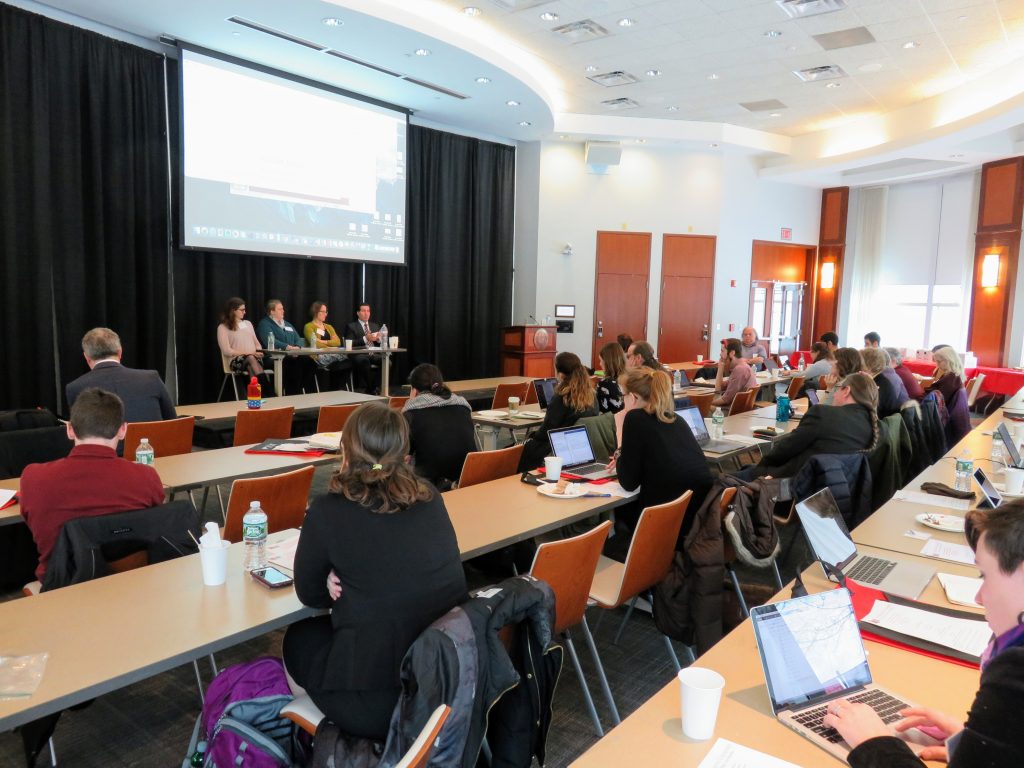By Bill Quinn
On March 16, the NULab hosted its second annual conference on the theme “Fake News/Real Knowledge: Histories, Structures, and Futures.” The interdisciplinary conference highlighted work from faculty, graduate students, and research collaborators.
Yochai Benkler, Berkman Professor of Entrepreneurial Legal Studies at Harvard Law School and faculty co-director of the Berkman Klein Center for Internet and Society at Harvard University, opened proceedings with the keynote speech, ”The Architecture of Disinformation in the American Public Sphere.”

Throughout the day, NULab faculty presented on new work and projects. Meg Heckman introduced her work (in partnership with John Wihbey) on how news stories are adopted by local news outlets; Tina Eliassi-Rad shared her new project, “Just Machine Learning,” which examines how biases are built into and emerge from machine learning; and, Nicholas Beauchamp spoke on his research into the spread of hate speech on Twitter. NULab co-director David Lazer also presented new work analyzing voter patterns and social media, which mapped out the spread of fake news on Twitter.
A recurring theme throughout the conference was the way information is shaped, disseminated, and acted upon. Laura Nelson talked about how ideas get translated into practice through network analysis. Kenneth Joseph, Network Science Institute postdoctoral fellow, presented a talk titled “Who Says What to Whom: Using Bi-Spectral Clustering to Organize and Analyze Social Media Protest Networks.” Costas Panagopoulos, professor of political science and director of big data and quantitative initiatives within the College of Social Sciences and Humanities, spoke on “Conspiracy Propagation and Fake News: A Sociopsychological Perspective.”

Graduate work from former NULab fellows was also showcased. English department PhD candidate and current Humanities Center fellow Jonathan Fitzgerald shared his work, “The Other Fake News: Underrepresented Women Writers and the History of Literary Journalism,” showing that the exclusion of women writers from the history of literary journalism has created an incomplete picture of that history. Sarah Shugars, a PhD student at the Network Science Institute, presented on the behaviors and patterns of online commentators in “Why Keep Arguing? Predicting Participation in Political Conversations Online.” Elizabeth Maddock Dillon, professor and Chair of the Department of English and co-director of the NULab, presented with English Department PhD student Alanna Prince on “The Colonialism of the Archive and Digital Decolonization,” in which they shared how the Early Caribbean Digital Archive is working to change frameworks for knowledge production and construct archives that include more diverse perspectives.
The conference panels dovetailed with NULab’s year-long theme on fake news and disinformation, showcasing a wide range of historical and contemporary topics from interdisciplinary and multigenerational research projects here at the NULab.



